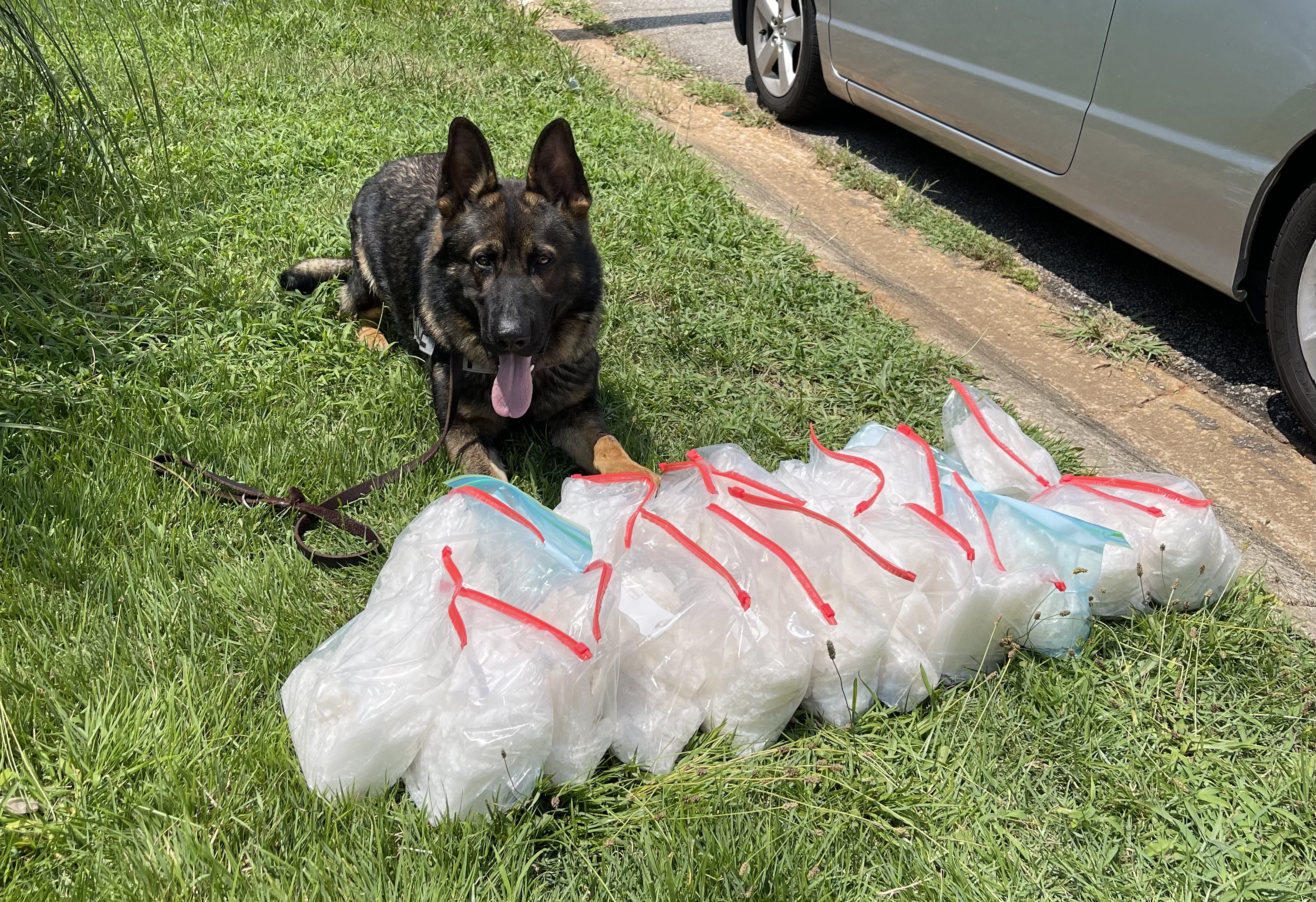
Waro: From Green Dog to Police K9 Powerhouse
Discover how Waro, a driven German Shepherd, was trained at Tarheel Canine to excel in advanced obedience, narcotics detection, tracking, and bite work—skills that have made him a force to be reckoned with in the Atlanta Police Department.
Waro’s Journey: Training an Elite Police K9
Waro, a German Shepherd with extraordinary drive and intensity, came to me at Tarheel Canine as a green dog with raw potential. It was clear from the start that he was destined for greatness. Over the course of his training, I worked with Waro to hone his skills in advanced obedience, narcotics detection, tracking, and bite work. Every aspect of his training was carefully designed to prepare him for the demands of his role as a dual-purpose police dog.
Today, Waro serves with distinction in the Atlanta Police Department. His career has been marked by numerous successful apprehensions and significant narcotics busts, including large quantities of methamphetamine, marijuana, and other illicit substances. His ability to perform under pressure is a testament to the comprehensive training program he underwent, which transformed him from an untrained green dog into a capable and reliable police K9.
The Role of Prey Drive in K9 Training
One of the keys to Waro’s success was developing his natural prey drive—a fundamental instinct in working dogs. Prey drive refers to a dog’s instinctual desire to chase, hunt, and capture. This drive serves as the foundation for many aspects of police K9 work, including detection, tracking, and bite work.
From the moment Waro arrived, I focused on shaping and channeling his prey drive into productive behaviors. The process began with games that engaged his natural instincts and gradually transitioned to more structured tasks. For example:
- Detection Work: I introduced Waro to searching by hiding toys in a detection room. Using classical conditioning, I created a ritual to excite him—a specific pattern of words and actions that signaled playtime. Over time, this ritual became a cue that primed him for the game. Once released with a search command, Waro would enthusiastically scour drawers, appliances, and hidden spaces for his toy. This same method was later used to introduce him to detecting narcotics.
- Tracking: Waro’s prey drive was also key to his tracking work. By associating the act of following a scent trail with the reward of finding a “prey item,” he learned to focus and persist through distractions, even in challenging environments.
- Bite Work: Prey drive played a critical role in developing Waro’s grip strength and targeting. Starting with bite pillows and soft sleeves, I encouraged him to build confidence in his bite. As his skills progressed, we transitioned to harder sleeves, Belgian sleeves, and full bite suits, before introducing hidden sleeves for real-world scenarios. Each step was designed to teach him precision in targeting specific areas, ensuring he could neutralize threats effectively without causing unnecessary harm.
The Importance of Grip Development and Targeting
Grip development and targeting are two of the most important aspects of bite work for police K9s. A strong, full-mouth grip ensures the dog can maintain control over a suspect without hesitation or slippage, which is crucial in high-stress situations. Similarly, precise targeting reduces the risk of injury to the suspect and maximizes the dog’s effectiveness in apprehension scenarios.
With Waro, I focused on building his confidence in his grip through positive reinforcement and gradual progression. Starting with bite pillows allowed him to learn proper bite mechanics before moving to more challenging equipment. Targeting exercises were equally important, teaching Waro to aim for specific areas, such as the forearm or leg, which are essential for subduing suspects safely and effectively.
Waro’s Success Today
The comprehensive training Waro received at Tarheel Canine laid the foundation for his success as a police K9. His ability to detect narcotics, track suspects, and perform controlled apprehensions is a direct result of the structured development of his prey drive, grip, and targeting skills. Games, rituals, and gradual progression transformed Waro’s natural instincts into finely tuned abilities that serve his handler and community daily.
Waro’s story highlights the value of a well-rounded training program that combines instinctual development with precision and control. Whether it’s locating hidden drugs, tracking fleeing suspects, or apprehending dangerous individuals, Waro continues to excel in his role, proving that dedication to the training process can turn raw potential into exceptional performance.